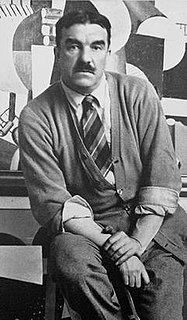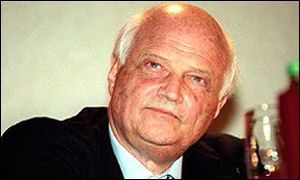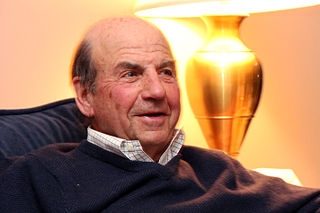A Quote by W. Somerset Maugham
He knew that all things human are transitory and therefore that it must cease one day or another. He looked forward to that day with eager longing. Love was like a parasite in his heart, nourishing a hateful existence on his life's blood; it absorbed his existence so intensely that he could take pleasure in nothing else.
Related Quotes
The pleasure and the love of God for His creatures constitute the original state. His pleasure and love are the means by which He has brought His creatures into existence and are the cause of that bringing into existence. He who knows that he possesses neither being nor act rediscovers himself in that original state of pleasure and divine love.
...the girl longed for a love that could not be ended by death. From the time she was young, she knew that her true love was there, somewhere, living a life that would one day intersect her own. Knowing this made every day full of sweet possibility. Knowing that her true love lived and breathed and went about his day under her same sun made her fears vanish, her sorrows small, and her hopes high. Though she did not yet know his face, the color of his eyes, still she knew him better than anyone else knew him, knew his hopes and dreams, what made him laugh and cry.
Of all the animal creations of God, main is the only animal who has been created in order that he may know his Maker. Man's aim is life is not therefore to add from day to day to his material prospects and to his material possessions, but his predominant calling is, from day to day to come nearer to his own Maker.
If there is existence, there must be non-existence. And if there was a time when nothing existed, there must have been a time before that - when even nothing did not exist. Suddenly, when nothing came into existence, could one really say whether it belonged to the category of existence or non-existence?
Miserable is the man who loves a woman and takes her for his wife, pouring at her feet the sweat of his skin and the blood of his body and the life of his heart, and placing her in the hands of the fruit of his toil and the revenue of his diligence; for when he slowly wakes up, he finds that the heart that he endeavored to buy is given away freely and in sincerity to another man for the enjoyment of its hidden secrets and deepest love.
None has more frequent conversations with a disagreeable self than the man of pleasure; his enthusiasms are but few and transient; his appetites, like angry creditors, are continually making fruitless demands for what he is unable to pay; and the greater his former pleasures, the more strong his regret, the more impatient his expectations. A life of pleasure is, therefore, the most unpleasing life.
God made the world for the delight of human beings-- if we could see His goodness everywhere, His concern for us, His awareness of our needs: the phone call we've waited for, the ride we are offered, the letter in the mail, just the little things He does for us throughout the day. As we remember and notice His love for us, we just begin to fall in love with Him because He is so busy with us -- you just can't resist Him. I believe there's no such thing as luck in life, it's God's love, it's His.
I suppose it's possible that the Sundance Kid didn't like to make much of his birthdays — they may have struck him as just another reminder that his draw was getting slower by the year—but what if he truly liked a major celebration? What if he looked forward every year to marking the day of his birth with what they used to call in the West 'a real wingding, with pink balloons and a few survivors'?
To me the sole hope of human salvation lies in teaching Man to regard himself as an experiment in the realization of God, to regard his hands as God's hand, his brain as God's brain, his purpose as God's purpose. He must regard God as a helpless Longing, which longed him into existence by its desperate need for an executive organ.






































